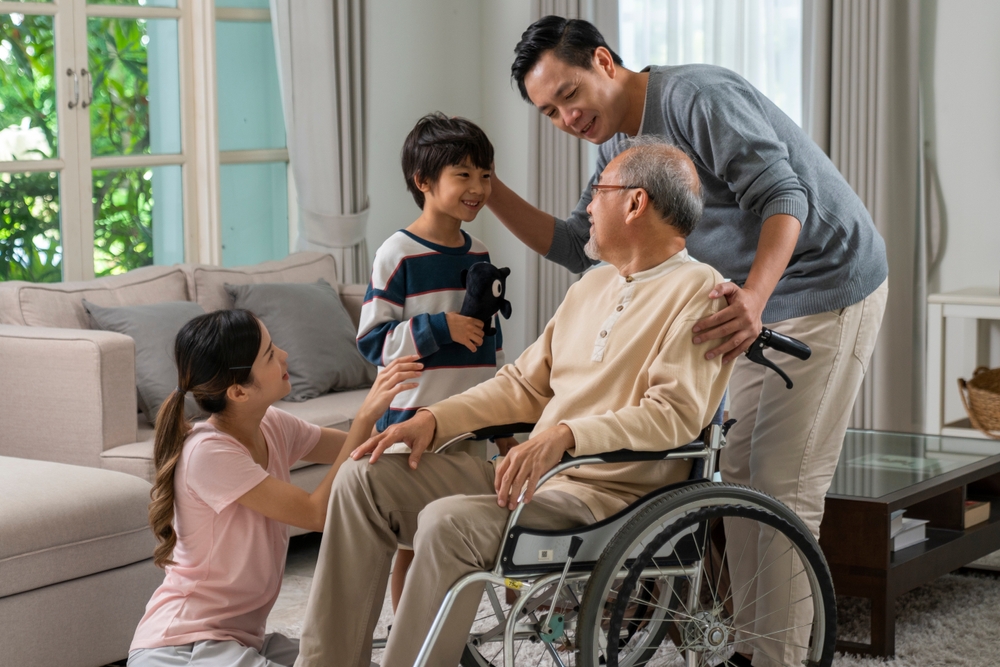
The Role of Family in Skilled Nursing Care:
How Families Can Stay Involved and Support Their Loved Ones
Transitioning a loved one to skilled nursing care can be an emotional journey for families. While skilled nursing facilities provide professional, round-the-clock care, the role of the family remains invaluable. Family involvement can significantly improve the emotional well-being, health outcomes, and overall quality of life for residents. In this blog, we will explore how families can stay involved and actively support their loved ones in skilled nursing care.
Emotional Support: The Foundation of Family Involvement
One of the most crucial ways families can contribute is by providing emotional support. Though skilled nursing facilities focus on physical health and medical needs, the emotional connection with family members is irreplaceable.
- Regular Visits: Frequent visits can help reduce feelings of loneliness and isolation. Whether daily, weekly, or monthly, regular contact strengthens bonds and reassures residents that they remain an important part of their family’s life.
- Calls and Video Chats: In today’s digital age, staying in touch through phone calls or video chats can bridge the gap when in-person visits aren’t possible. This ongoing connection fosters a sense of continuity and emotional security.
- Personalized Items: Bringing personal items such as family photos, favorite blankets, or treasured keepsakes can provide comfort, making the nursing home feel more like home.
Collaborating with Staff: Ensuring Quality Care
Families can play an active role by collaborating closely with the nursing staff to ensure their loved one receives personalized care.
- Attend Care Meetings: Skilled nursing facilities often hold care plan meetings to review the resident’s health status and make adjustments as needed. By attending these meetings, families can provide insights into their loved one’s preferences and advocate for their needs.
- Open Communication: Maintaining open and respectful communication with the staff is essential. Families should feel comfortable asking questions, sharing concerns, and staying informed about their loved one’s medical and emotional well-being.
- Sharing Personal Preferences: Families know their loved ones best. Providing the nursing staff with details about the resident’s daily habits, favorite activities, or dietary preferences helps create a more personalized care experience.
Encouraging Social Engagement: Keeping Loved Ones Active
Skilled nursing facilities often provide a variety of activities designed to promote social engagement and mental stimulation. Families can help ensure their loved ones stay active and socially connected.
- Encourage Participation: Encourage your loved one to join group activities, such as art classes, game nights, or exercise programs. Social involvement helps prevent isolation and promotes a sense of belonging.
- Join in Special Events: Many skilled nursing facilities host family-friendly events, such as holiday celebrations or themed parties. Attending these events together fosters positive experiences and builds memories within the care environment.
- Plan Outings: Depending on your loved one’s health and mobility, consider planning outings for fresh air or a change of scenery. Whether it’s a short trip to a local park or a family gathering, these outings can uplift spirits and create lasting moments of joy.
Monitoring Health and Well-Being: A Watchful Eye
While the skilled nursing team handles the day-to-day care, families play a key role in monitoring their loved one’s overall well-being.
- Observe Changes: Families are often the first to notice subtle changes in their loved one’s mood, behavior, or physical condition. If something seems off, it’s essential to communicate this to the nursing staff, as early intervention can prevent complications.
- Review Medical Updates: Stay informed about any changes to your loved one’s medications, treatment plans, or health status. Attending doctor’s appointments and reviewing medical records helps ensure that your loved one’s care is consistent and aligned with their needs.
- Advocate for Comfort and Quality of Life: Beyond medical care, families should advocate for their loved one’s comfort, whether it involves ensuring they receive their favorite meals, have enough downtime, or are pain-free.
Providing Reassurance: Easing the Transition
The move to a skilled nursing facility can be difficult for many residents, as they may feel a loss of independence or control. Families can help ease this transition by providing reassurance and encouragement.
- Acknowledge Their Feelings: It’s normal for residents to experience a mix of emotions, including sadness, frustration, or anxiety. By acknowledging these feelings and listening without judgment, families can provide emotional support and comfort during this challenging time.
- Encourage Autonomy: Whenever possible, encourage your loved one to make decisions about their daily routine, such as choosing their meals, deciding what activities to participate in, or selecting their clothing. Promoting autonomy can boost their sense of control and self-esteem.
- Be Patient: Adjusting to a new environment takes time. Families should be patient and offer ongoing reassurance, reminding their loved one that they are in a safe and caring space.
Supporting Residents And Their Families At Oakey Assisted Living
The role of family in skilled nursing care is vital to ensuring that residents feel supported, loved, and cared for in every aspect of their lives. By providing emotional support, collaborating with staff, encouraging social engagement, monitoring well-being, and offering reassurance, families can significantly improve the quality of life for their loved ones in skilled nursing care. Stay involved, ask questions, and remember that your presence
At Oakey Assisted Living, we understand the importance of family involvement in skilled nursing care. We encourage families to stay connected, visit regularly, and collaborate with our dedicated staff to provide the best care possible for your loved ones. If you’re ready to learn more about how we support both residents and their families, reach out to us today for more information or to schedule a tour. Let’s work together to ensure your loved one feels supported, valued, and cared for every step of the way.
